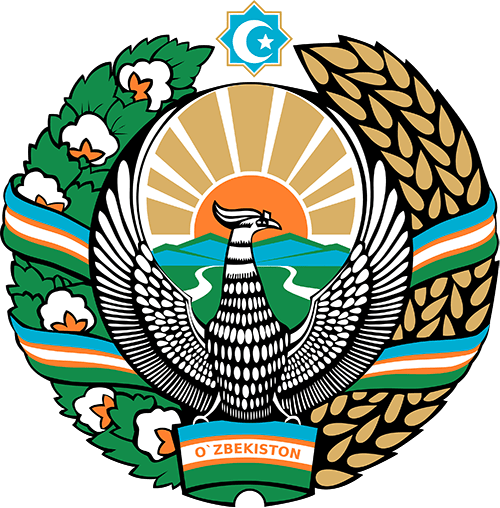Responsible for the educational and methodological activities of the department: MD, Associate Professor Raimkulova N.R.
Educational activities at the department are carried out according to approved standard and work programs, as well as individual work and annual plan.
Students study at the department in the educational direction “Pediatric business”, “Medical business”, “Medical and pedagogical business”, “Medical and biological business”, also clinical residents and undergraduates in the specialty “Therapy”, “Cardiology”, “Pulmonology” are trained at the department.
Thematic plan of lectures for the 2023-2024 academic year
module Propaedeutics of internal diseases for students of the third year in the direction of study Pediatrics
| № | Lecture Topics | Watch volume | |
| V semester | |||
| 1 | Acute rheumatic fever. Heart defects: symptomatology of mitral and aortic heart diseases. | 2 | |
| 2 | The digestive system. Methods for the study of the esophagus, stomach, intestines (questioning, physical, laboratory and instrumental methods). The main clinical syndromes in diseases of the digestive system. | 2 | |
| 3 | Methods for examining the liver and biliary tract: questioning, physical methods of research (examination, palpation, percussion). Laboratory and instrumental research methods. | 2 | |
| 4 | The main clinical syndromes in the pathology of the liver and biliary tract: jaundice syndrome, portal hypertension, liver failure. Symptoms of hepatitis, liver cirrhosis, chronic cholecystitis. | 2 | |
| 5 | Kidneys and urinary system. Research methods: questioning, physical research methods (examination, palpation, percussion). Laboratory and instrumental research methods. The main clinical syndromes in kidney pathology: urinary, nephrotic, renal hypertension syndrome. Symptomatology of acute and chronic glomerulonephritis and pyelonephritis, acute and chronic renal failure. | 2 | |
| 6 | Methods for studying the hematopoietic system: questioning, examination, physical methods of research (palpation, percussion), laboratory and instrumental research methods. anemia. Symptomatology of iron deficiency and vitamin B12 – folic deficiency anemia. | 2 | |
| 7 | Research methods of the endocrine system: questioning, examination, physical research methods (palpation, percussion), laboratory and instrumental research methods. Symptoms of diabetes mellitus, thyrotoxicosis and hypothyroidism. | 2 | |
| Total | 14 | ||
Thematic plan of practical classes for the 2023-2024 academic year on the module Propaedeutics of internal diseases for third-year students in the direction of study Pediatrics
| № | Practice Topics V semester | Watch volume | |
| Практические | Клинические | ||
| Methods for studying the digestive system. Inquiry. Mechanism of symptoms and diagnostic value. General examination, examination of the abdomen. Palpation of the abdomen (superficial and deep). diagnostic value. Laboratory and instrumental methods for studying the digestive system. | 1 | 3 | |
| The main clinical syndromes in diseases of the digestive system. Symptomatology of gastritis (acute and chronic). Symptomatology of peptic ulcer of the stomach and duodenum 12. | 2 | 2 | |
| Diagnosis and symptomatology of enteritis and colitis. Syndromes of malabsorption and maldigistia. | 1 | 3 | |
| Methods for the study of the liver and biliary tract. Inquiry, examination. Palpation, percussion of the liver and gallbladder (rules and technique). Diagnostic value. | 4 | ||
| Modern laboratory and instrumental methods for the study of the liver and biliary tract. | 2 | 2 | |
| The main clinical syndromes in the pathology of the liver and biliary tract: jaundice syndrome, portal hypertension, liver failure. Symptomatology and diagnosis of chronic hepatitis, cholecystitis, liver cirrhosis. | 2 | 2 | |
| Methods for studying the kidneys and urinary system. Inquiry, examination. Palpation and percussion of the kidneys. Diagnostic value. | 2 | 2 | |
| Laboratory and instrumental methods for studying the kidneys and urinary system. | 1 | 3 | |
| The main clinical syndromes in kidney pathology: urinary, nephrotic, renal hypertension syndrome, renal failure syndrome. | 2 | 2 | |
| Symptomatology and diagnosis of acute and chronic glomerulonephritis and pyelonephritis. Symptomatology and diagnosis of renal failure (acute and chronic). | 1 | 3 | |
| Methods for studying the hematopoietic system: questioning, examination. Palpation of bones, lymph nodes, spleen (rules and technique). | 2 | 2 | |
| The main clinical syndromes in diseases of the blood system. Symptomatology and diagnosis of anemia. | 2 | 2 | |
| The main clinical syndromes in diseases of the blood system. Symptomatology and diagnosis of hemorrhagic diathesis. The concept of leukemia. Writing a medical history. | 2 | 2 | |
| Methods for the study of the endocrine system. Questioning, objective examination, physical, laboratory and instrumental research methods. | 2 | 2 | |
| Symptoms of thyroid diseases. Symptoms of diabetes. | 2 | ||
| Total | 22 | 36 | |
LECTURES ON THE SUBJECT OF INTERNAL DISEASES FOR THE 4TH YEAR FOR THE 2023-2024 ACADEMIC YEAR
| № | Topic of the lecture and its content | Number of hours |
| 1 | Acute rheumatic fever. Etiology, pathogenesis, pathological anatomy, classification, clinic, diagnosis, interpretation of laboratory data, treatment standards, prevention. | 2 hours |
| 2 | Hypertension. Etiology, pathogenesis, pathological anatomy, classification, clinic, diagnosis, interpretation of laboratory data, treatment standards, prevention. | 2 hours |
| 3 | Atherosclerosis. IHD. Angina pectoris. Etiology, pathogenesis, pathological anatomy, classification, clinic, diagnosis, interpretation of laboratory data, treatment standards, prevention. | 2 hours |
| 4 | Myocardial infarction. Etiology, pathogenesis, pathological anatomy, classification, clinic, diagnosis, interpretation of laboratory data, treatment standards, prevention. | 2 hours |
| 5 | CHF. Etiology, pathogenesis, pathological anatomy, classification, clinic, diagnosis, interpretation of laboratory data, treatment standards, prevention | 2 hours |
| 5 | Arrhythmia. Etiology, pathogenesis, pathological anatomy, classification, clinic, ECG criteria, diagnosis, interpretation of laboratory data, treatment standards, prevention. | 2 hours |
| 6 | Heart blocks. Etiology, pathogenesis, pathological anatomy, classification, clinic, diagnosis, interpretation of laboratory data, treatment standards, prevention. | 2 hours |
| Altogether | 14 p.m. | |
PRACTICAL CLASSES ON THE SUBJECT OF INTERNAL DISEASES FOR THE 4TH YEAR FOR THE 2023-2024 ACADEMIC YEAR
| № | Topics and content of practical exercises | Number of hours | |
| Practice (theory) | Wedge. Educational practice | ||
| 1. | EAGLE. Etiology, pathogenesis, pathological anatomy, classification, clinic, diagnosis, interpretation of laboratory data, treatment standards, prevention. | 2,0 | 2,0 |
| 2. | Mitral heart defects. Etiology, pathogenesis, pathological anatomy, classification, clinic, diagnosis, interpretation of laboratory data, treatment standards, prevention. | 3,0 | 3,0 |
| 3. | Hypertension. Etiology, pathogenesis, pathological anatomy, classification, clinic, diagnosis, interpretation of laboratory data, treatment standards, prevention. | 2,0 | 2,0 |
| 4. | Atherosclerosis. IHD. Angina pectoris. Etiology, pathogenesis, pathological anatomy, classification, clinic, diagnosis, interpretation of laboratory data, treatment standards, prevention. | 2,0 | 2,0 |
| 5. | Myocardial infarction. Etiology, pathogenesis, pathological anatomy, classification, clinic, diagnosis, interpretation of laboratory data, treatment standards, prevention. | 2,0 | 2,0 |
| 6. | Myocarditis. Pericarditis. Etiology, pathogenesis, pathological anatomy, classification, clinic, diagnosis, interpretation of laboratory data, treatment standards, prevention. | 3,0 | 3,0 |
| 7. | Cardiomyopathy. CHF. Etiology, pathogenesis, pathological anatomy, classification, clinic, diagnosis, interpretation of laboratory data, treatment standards, prevention. | 3,0 | 3,0 |
| 8. | Arrhythmias of the heart. Etiology, pathogenesis, pathological anatomy, classification, clinic, diagnosis, interpretation of laboratory data, treatment standards, prevention. | 2,0 | 2,0 |
| 9. | Blockade of the heart. Etiology, pathogenesis, pathological anatomy, classification, clinic, diagnosis, interpretation of laboratory data, treatment standards, prevention. | 2,0 | 2,0 |
| Altogether | 20 | 20 | |
Chronological map for practical classes
| Stages of classes | Distribution of study time |
| 9.00-9.05 | Organizational part |
| 9.05-10.20 | Control of the initial level of the previous lesson Examination of a thematic patient |
| 10.20-10.35 | Change |
| 10. 35-11.55 | Theoretical analysis of a new topic. Demonstration of the implementation of practical skills of a new topic. Analysis of a thematic patient. Conclusion of the practical lesson, summing up. Test control of knowledge. Independent implementation of practical skills. Explanation of the new lesson topic |
Chronocards for faculty therapy classes
for the IV course during the lecture days
( № 1, 2, 4, 5, 6, 7, 8, 9)
| № | 8:30-10.00 | Organizational part (greeting, roll call). Presentation of lecture material |
| 1. | 10.00-10:15 | Change |
| 2. | 10:15-11:00 | To determine the topic and purpose of the lesson, to substantiate the relevance of diseases (etiology, pathogenesis, clinic, diagnosis and treatment) |
| 3 | 11.00-11.45 | Curation of thematic patients in the department |
| 4. | 11:45-12:30 | Change |
| 5 | 12.30- 13.15 | Analysis of supervised patients in the department, interpretation of laboratory and instrumental data and diagnosis |
| 6. | 13:15-14:00 | Summarizing the lesson with an assessment of students’ knowledge and explaining the new topic of the lesson |
Chronological map for classes № 2, 5
| № | 8:30-10.00 | Organizational part (greeting, roll call). Presentation of lecture material |
| 1. | 10.00-10:15 | Change |
| 2. | 10:15-11:00 | To determine the topic and purpose of the lesson, to substantiate the relevance of diseases (etiology, pathogenesis, clinic, diagnosis and treatment) |
| 3 | 11.00-11.45 | Curation of thematic patients in the department |
| 4. | 11:45-12:30 | Change |
| 5 | 12.30- 13.15 | Analysis of supervised patients in the department, interpretation of laboratory and instrumental data and diagnosis |
| 6. | 13:15-14:00 | Summarizing the lesson with an assessment of students’ knowledge and explaining the new topic of the lesson |



